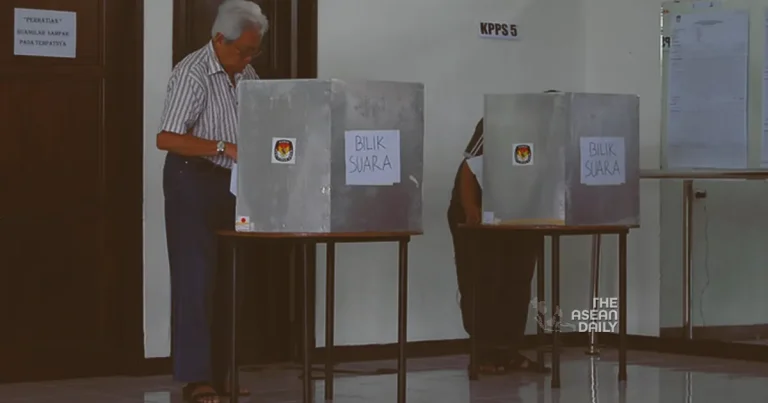5-11-2023 (JAKARTA) With Indonesia’s upcoming elections on the horizon, the spread of fake news and disinformation has become a growing concern. The government has been actively addressing this issue, releasing multiple clarifications and requesting the removal of over 450 pieces of false information from Facebook.
Since the registration for the nation’s top two spots opened on October 19, the Ministry of Communications and Informatics has published at least 15 election-related posts on its website to debunk and clarify the spread of fake news, commonly known as “hoaxes” in Indonesia.
Campaigning is set to begin on November 28, leading up to the voting day on February 14. The presidential candidates include Defence Minister Prabowo Subianto, 72; former Central Java governor Ganjar Pranowo, 55; and former Jakarta governor Anies Baswedan, 54. However, all three candidates, as well as their running mates in some cases, have been targeted by hoaxes circulating online. These hoaxes often employ eye-catching or shocking headlines, accompanied by doctored images or videos to lure viewers into sharing the misinformation.
The Ministry of Communications and Informatics has been actively countering these hoaxes. In one instance, on October 21, the ministry warned the public about a fake TikTok account using Ganjar’s name to reward people with prizes. The ministry stressed that Ganjar’s legitimate account is verified with a blue tick.
On October 24, the ministry cautioned Indonesians about fake news claiming that Prabowo, due to his age, could not run for president as he was over 70 years old. They also debunked a video circulating online, which falsely depicted Gibran Rakabuming Raka, Prabowo’s running mate and the mayor of Surakarta, accidentally playing a pornographic video during a presentation. The video was actually from a news story in Taiwan in 2018 featuring a different individual.
Minister of Communication and Informatics Budi Arie Setiadi noted a significant increase in hoaxes since July. He assured the public that the government was prepared to respond and combat the spread of disinformation. The ministry has been working with Meta, the company that manages Facebook, to remove 454 pieces of fake content related to the election.
While fake news during Indonesian elections is not a new phenomenon, the ministry has observed a worrisome increase in the amount of disinformation being spread. From January 19 to October 27, they identified 101 election-related hoax issues, a significant rise compared to the 11 issues recorded in the entirety of 2022.
The ministry emphasized that it is not just politicians who are targeted by hoaxes but also institutions like the General Elections Commission, with the aim of creating distrust among the public.
To combat the spread of hoaxes, the ministry has launched an ongoing campaign called “Beware of 2024 Election Hoaxes,” urging the public to be cautious when receiving and sharing election-related information.
Home Affairs Minister Tito Karnavian expressed concern about “black campaigns” that could polarize society and provoke tensions ahead of the election. He instructed the police to take necessary measures, including conducting patrols in cyberspace, to address and mitigate the risks of conflicts fueled by false information.
Efforts to cool down the situation, particularly on social media, are seen as crucial to maintaining a peaceful electoral process. The government emphasizes the importance of community cooperation in countering hoaxes and disinformation, urging the public to remain vigilant and responsible in the dissemination of election-related information.




